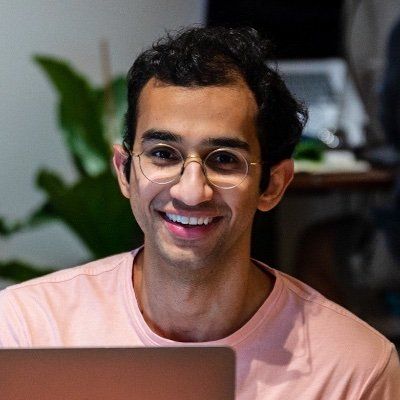Yeah, I think. Yeah, it's always an interesting chain of logic,
I'm not sure the endpoint of your privileged means you should stay in a
high-wage job. Well, I'm trying to unpack this. And the, I definitely am aware
of this, right, if you're born in like, the Western nations, Australia, UK,
there's a bunch of them. And you go to college, you basically can earn a lot of
money, relative to most other countries. Like you, you can live in many, many,
many countries on $1,000 a month, which is pretty easy for many people in the US
to earn. Now, I've, I made a lot of compromises. So like, when I left New York,
I had like a nice apartment, I spent a lot of money. I moved in with four like
23 year olds, in a five bedroom house, like in a distance away from downtown
Boston and dramatically reduce my rent to like, save up, save money.
And I made a sacrifice, like I stopped going out to eat with friends, I cooked
at home I like, so I made like dramatic life changes that I think a lot of
people could make. And then I think the interesting thing that kind of shifted
things for me is meeting people around the world who have much less and seem to
make much braver decisions, than some of my peers making a lot of money in the
US. So I think sometimes like the privilege, conversation almost traps people
more into not doing something they're like, I can't go to this country and just
like hang out because it it just doesn't follow that right. So I think by
spending time in other countries, meeting other people, meeting people of
different backgrounds, I've become a nicer person, I've become more generous,
I've engaged more with my free time locally.
Like, I do the same thing you do in Cambridge with, like, I've done a lot in
Taipei, like people dalways try to, like pay me or offer me things. But I just
help people. I've helped local businesses build websites, I've helped people to
interview for jobs to be a pilot, I've helped people with their resume, I've
helped people learn English. So there's a lot more ways to engage with the world
than making money. And I think part of the problem with politics in the West is
that we tend to look at everything as a financial calculus. So like, the
problems with society are that people don't have enough money, right? And that I
think, traps us in seeing the ways for connection, generosity, and those things
matter and there are inequalities. But like, I mean, my wife was not making very
But in many ways, like I think some of those people are a lot better off than
much money. Taiwanese average salaries like 7 grand US a year.
people in the US like they have universal health care. They've much tighter
community of family and she saved like $3,000 and then quit her job and traveled
for three months. And that was all the money she had. That takes a lot more guts
than me.


























































































































































































































